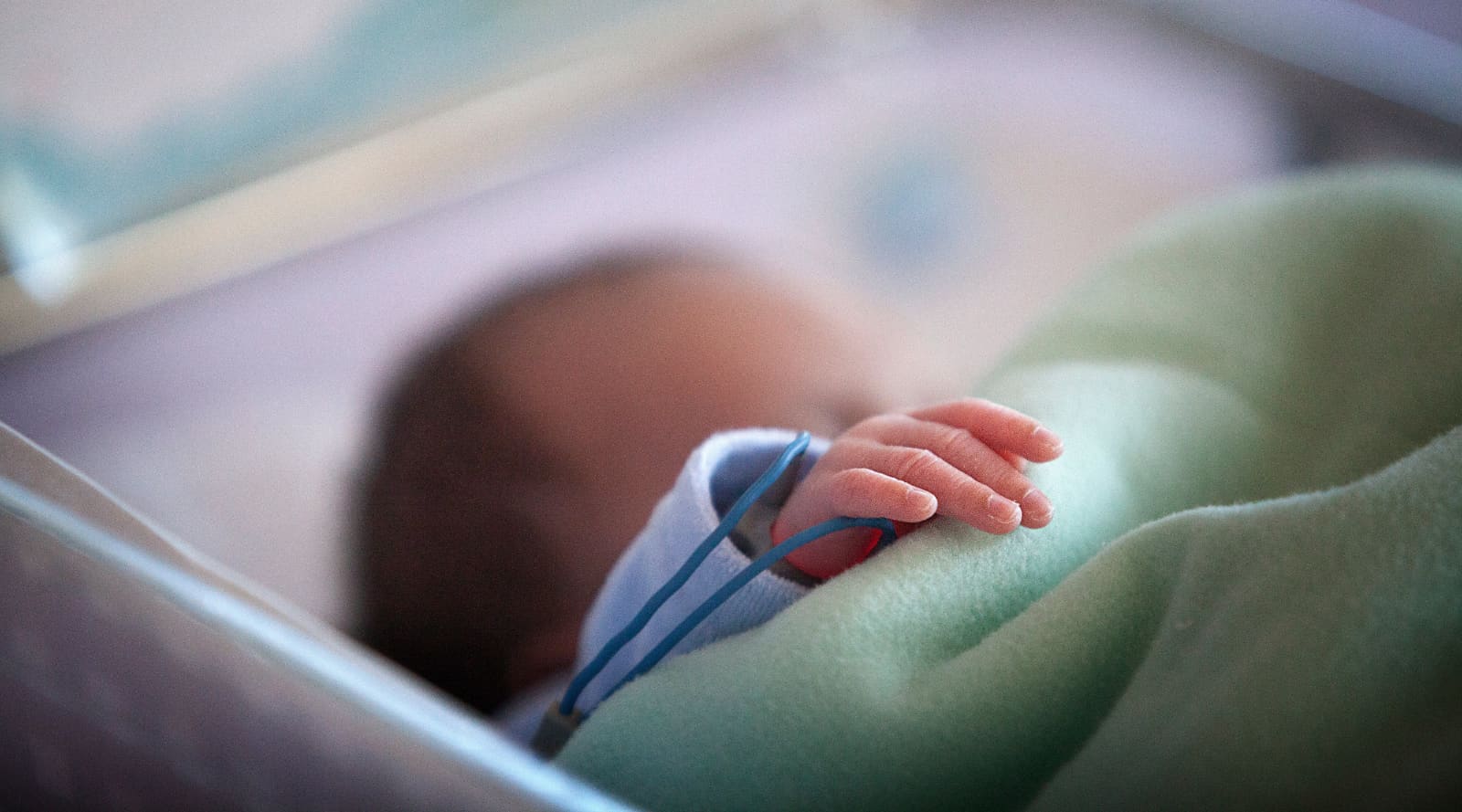Introduction
Having a preterm baby won't be what you were expecting or planning, and you're bound to have lots of questions, worries and concerns.
There's so much to think about, and how to feed your preterm baby is going to be right at the top of your list. We hope the information below will provide some practical tips to help you cope.
How to feed a preterm baby?
Breast milk is the ideal nutrition for babies, especially those born prematurely. Preterm babies might not be able to breastfeed directly or through a bottle at first. So, when it comes to preterm baby feeding, as mum, it's likely you'll be asked to express your breast milk so it can be given to your baby via a tube that goes through the nose or mouth and straight into your baby's stomach. If that is not an option, your healthcare professional might suggest your baby is safely fed using donor breast milk from a milk bank.
Feeding and nutrition in the preterm infant is a little more challenging as they'll need more calories and nutrients than full-term babies do. To help meet these increased requirements the neonatal unit (NICU) might add extra nutrients in the form of fortifiers to your baby's milk. Feeding preterm babies has to be done slowly too to avoid intestinal problems. Very tiny babies might be fed intravenously using total parenteral nutrition (TPN).
What if I can't breastfeed my preterm baby?
Preterm babies often can't breastfeed directly, so you may be asked to express milk so they can be fed via a tube. There are some things you can try to help you express milk regularly. The NHS suggests trying eight times a day and at least once during the night to encourage milk supply. Your healthcare professional will show you how to do it by hand, to begin with. You might only get a few drops at first, but that will still be so good for your baby.
Once your milk is more available, your NICU should be able to provide you with an electric breast pump to help. Try to express as much milk as possible, you'll really be helping your little one through their first few weeks. If you are unable to express your own breast milk and donor breast milk is not available, then there are specialised preterm formulas that can be used.
My baby is in a neonatal unit – how do I cope?
Having a baby in NICU can be a worrying time. It's not planned or expected and can be heart wrenching with all the tubes and equipment being used to monitor your little one. If you possibly can, try and keep things as routine as possible. You'll want to be with your baby all the time but do try and take some proper breaks, look after yourself and spend some time away. Your baby is in the best hands possible.
Try and get home for a bit, go for a walk and spend some time with your family. Perhaps they can prepare some meals for you to take in and reheat in the NICU kitchen? It's good to talk, so keep everyone involved in what's going on and give them plenty of updates. NICU staff will know what you're going through, and there's bound to be other parents there you can lean on for support. A stay in NICU can be very challenging, but each day that passes is another day closer to hopefully bringing your gorgeous baby home.
How to bond with your baby?
Depending on how they're doing, you might be able to hold your baby or hold their hand to comfort them. Talking to them and even singing gentle lullabies can help you bond and let them know you're there. Some very tiny preterm babies can find being touched stressful; your healthcare professional will offer advice. If you can, some skin-to-skin contact is so good for bonding. It can help with your milk supply and might even speed up healing times. Skin-to-skin contact also has lots of benefits for your baby. You'll soon work out when your baby gets tired and what time of day they are most alert and ready for some interaction.
How to start weaning your preterm infant
Weaning preterm infants can be confusing. Experts say there's no right or wrong age to begin weaning, although, with preterm babies, you should wait until they are between 5 - 8 months uncorrected age (or at least 3 months corrected age) to allow for sufficient motor development. We have an article on what happens after you have a premature baby, which can help you to understand how to work out your baby’s corrected age. A lot of it will come down to your instinct as a parent. You might notice your little one is reaching out for your food or is fascinated watching you eat. It could be a sign they are ready to try something more solid.
If your preterm baby can support themselves sitting up, hold their head in a stable position or happily munch or try and chew a rubber toy, they may be telling you something! Give your baby some food to play with at your meal times under supervision. You might want to try baby rice at first, perhaps with some stewed fruit, mashed vegetables such as sweet potato, corn and bananas before moving on to small bits of broken up meat or fish. Yoghurt or fromage frais often either go down well or end up all over the walls! Your preterm baby might need some extra nutrition, so check with your healthcare professional. And enjoy it! Weaning is a sure sign your baby is growing up. BLISS have produced a practical guideline for parents of preterm infants covering information about weaning.
Will my preterm baby have developmental challenges?
Most preterm babies won't suffer developmental problems as they grow. However, the earlier they were born, the more likely it is that they might encounter some physical, social or emotional challenges as they get older. You might find they take longer to do things, to wean, crawl or say their first words, but that doesn't mean they won't catch up with babies born at 40 weeks plus. Parenting can be tough, and you might think you'll never sleep again, but remember you and your baby are unique, so keep being brilliant! Your healthcare professional will help you keep an eye on your preterm baby's growth and development, so don't be afraid to ask if you have any concerns.
Midwife Live Chat
We have partnered with Epical Global giving our SMA® Baby Club members instant access to a team of expert midwives, ready to answer all your questions. The midwife team are on hand via live chat Monday to Friday, 10am – 6pm.









